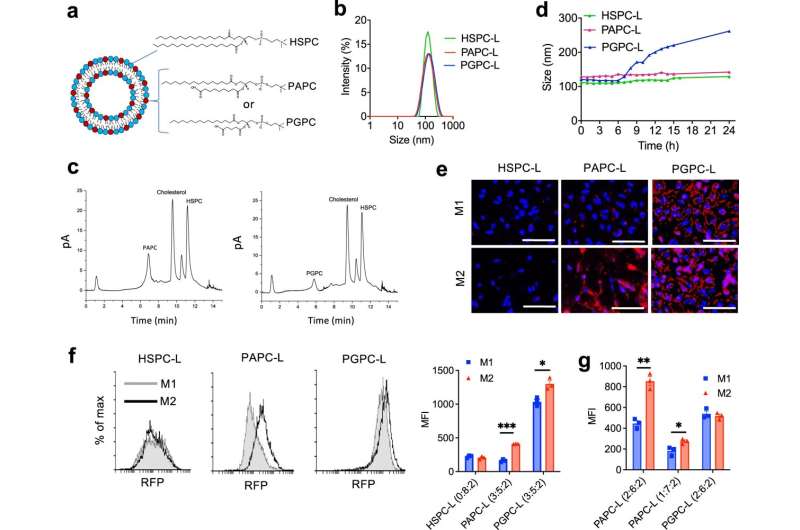Nanoparticles train immune cells to fight cancer

Scientists in the department of Advanced Organ Bioengineering and Therapeutics (Faculty of S&T, TechMed Centre) recently published a novel cancer immune therapy in the scientific journal Nature Communications. In their research, Prof Dr. Jai Prakash and his team developed newly designed nanoparticles which can target the body's immune cells to turn them against cancer.
In cancer research, it has been increasingly known that tumor cells can change the alliance of some specific macrophages to help the tumor grow. "Macrophages are cells that act like the vacuum cleaners of your immune system. Normally they catch intruders and destroy them, but tumor cells can hijack these cells to help them spread throughout the body," Prakash explains.
Prakash and his team designed nanoparticles that train these tumor-supporting "bad" macrophages into cells that will fight tumors. However, these tiny (100–200 nanometer diameter) cell-like structures first have to find the macrophages before they can start the training. Prakash says, "It was one of the questions we tried to answer with this research: How do we get our nanoparticles at the right location and to the right macrophage."
To solve this challenge, the researchers had to alter the nanoparticles. The nanoparticles consist of a double layer of specific lipids (phospholipids) called nanoliposomes. These lipids have long tails that like to stick together in between the double layer. "We replaced some of the lipids to ones with a slightly shorter charged tail that can 'flip' to the outer surface," Prakash explains. The bad macrophages can recognize these flipped tails and then eat up the whole particle.
"When we knew how to target the bad macrophages, it became time to train them into fighting the tumor again," Prakash says. The researchers added a small component of the bacterial cell wall, which can train macrophages, to the "tail-flipping" nanoliposomes in the double layer wall of these nanoparticles. These molecules are then also taken up by the bad macrophages which subsequently train them to kill cancer cells. Targeting this compound this way prevents it from being recognized by the wrong cells and thus prevents damage to other parts of the body.
In the publication, the researchers not only show that the hijacked macrophages can be retrained to fight the cancer cells again, inhibiting the tumor growth by 70% in breast tumor mouse models. "In our mice, the therapy prevented metastasis, the ability of cancer cells to spread through the body," Prakash says. The trained macrophages prevented the tumor cells from "preparing" lung tissue to host tumor cells—a process before metastasis. When a tumor cell arrived in the lungs, the tissue wasn't ready and the tumor cell couldn't start a new tumor.
More information: Praneeth R. Kuninty et al, Cancer immune therapy using engineered 'tail-flipping' nanoliposomes targeting alternatively activated macrophages, Nature Communications (2022).
Journal information: Nature Communications
Provided by University of Twente















